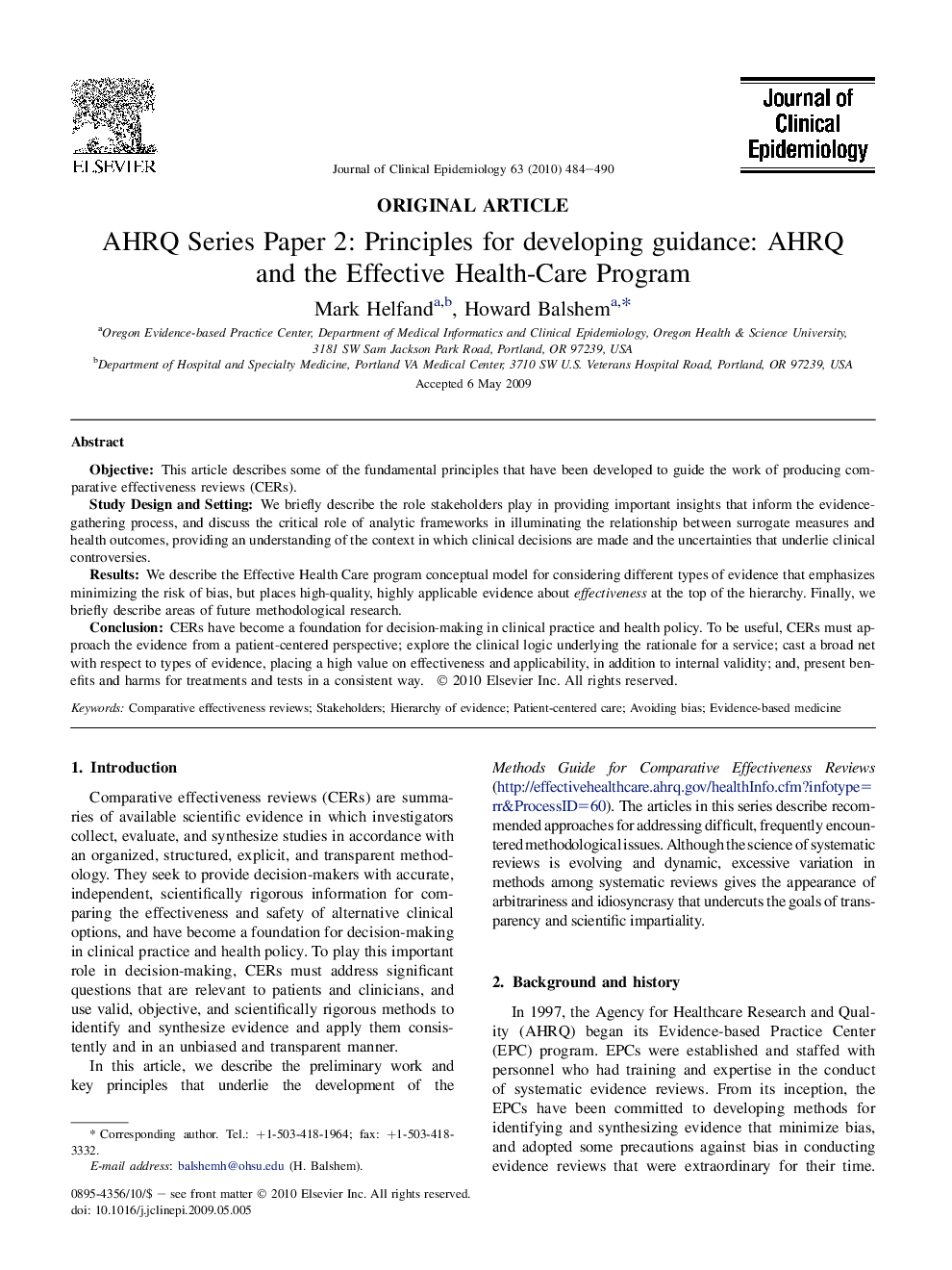| کد مقاله | کد نشریه | سال انتشار | مقاله انگلیسی | نسخه تمام متن |
|---|---|---|---|---|
| 1083190 | 950988 | 2010 | 7 صفحه PDF | دانلود رایگان |

ObjectiveThis article describes some of the fundamental principles that have been developed to guide the work of producing comparative effectiveness reviews (CERs).Study Design and SettingWe briefly describe the role stakeholders play in providing important insights that inform the evidence-gathering process, and discuss the critical role of analytic frameworks in illuminating the relationship between surrogate measures and health outcomes, providing an understanding of the context in which clinical decisions are made and the uncertainties that underlie clinical controversies.ResultsWe describe the Effective Health Care program conceptual model for considering different types of evidence that emphasizes minimizing the risk of bias, but places high-quality, highly applicable evidence about effectiveness at the top of the hierarchy. Finally, we briefly describe areas of future methodological research.ConclusionCERs have become a foundation for decision-making in clinical practice and health policy. To be useful, CERs must approach the evidence from a patient-centered perspective; explore the clinical logic underlying the rationale for a service; cast a broad net with respect to types of evidence, placing a high value on effectiveness and applicability, in addition to internal validity; and, present benefits and harms for treatments and tests in a consistent way.
Journal: Journal of Clinical Epidemiology - Volume 63, Issue 5, May 2010, Pages 484–490